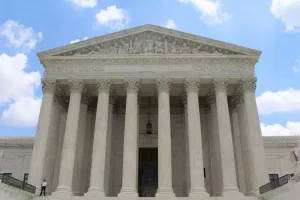
- Originally Published on May 21, 2024
What Are The Differences Between Libel and Slander?
When false statements damage your reputation, it’s crucial to understand your legal rights. The two main types of defamation are libel and slander. While these terms are often used interchangeably, there are important distinctions that impact your case. In this article, I’ll explain the key differences between libel and slander, break down the legal standards, and share tips to protect yourself from defamatory attacks.
What is the Difference Between Libel and Slander?
Libel and slander are two types of defamation – false statements that damage a person’s reputation. The main difference is the medium:
- Libel: Defamation in written or published form
- Slander: Defamation in spoken or verbal form
In other words, libel is a false written statement, while slander is a false spoken statement. Both can lead to legal action if they damage someone’s reputation.
What are Libel and Slander? Clear Definitions and Examples
Libel Definition and Examples
Libel is a false statement that is written or published, causing harm to another person’s reputation. This can include statements made in print publications like newspapers or magazines, as well as digital content such as social media posts, blogs, or online reviews.
Examples of Libel:
- A journalist publishes an article falsely accusing a local business owner of fraud
- An angry ex-partner posts lies about their former spouse on Facebook
- A competitor leaves a fake negative review of a rival company’s products on Yelp
Slander Definition and Examples
Slander, on the other hand, is spoken defamation. It involves making a false statement verbally to a third party that damages the subject’s reputation.
Examples of Slander:
- A disgruntled employee tells co-workers that their boss is embezzling money
- During an argument, a neighbor falsely accuses the other of being a convicted criminal
- At a PTA meeting, a parent spreads a rumor that a teacher is having an inappropriate relationship with a student
Both libel and slander can have severe consequences for the person being defamed. False allegations can lead to lost business opportunities, damaged relationships, and public humiliation. In some cases, emotional distress and reputational harm can even impact the defamed person’s mental and physical health.
The Legal Landscape of Libel and Slander: A Brief History
Defamation law has its roots in English common law, where it was originally considered a criminal offense. The rationale was that false statements could lead to duels or other breaches of the peace. As the tort evolved, it became a civil matter focused on providing damages to the injured party.
In the United States, defamation law is largely governed by state law, although there are some important constitutional limits. The landmark 1964 Supreme Court case New York Times Co. v. Sullivan held that public officials must prove “actual malice” to win a libel suit. This means showing the defendant knew the statement was false or acted with reckless disregard for the truth.
Later cases have extended this higher standard to public figures, who have greater access to media platforms to counteract false claims. Private figures must generally only prove negligence, meaning the defendant failed to take reasonable care to verify the statement.
Another key distinction emerged in the 1974 case Gertz v. Robert Welch, Inc. The Supreme Court ruled that while public figures must prove actual malice to recover any damages, private figures can recover compensatory damages for actual injuries with any form of fault. However, absent a showing of actual malice, private figures cannot recover punitive or presumed damages.
What Do You Need to Prove in a Libel or Slander Claim?
To win a defamation lawsuit, whether for libel or slander, the plaintiff (the person bringing the claim) generally must prove the following elements:
Elements of a Defamation Claim
- The statement was false. Truth is an absolute defense to defamation, so if the alleged statement is true, it cannot be defamatory.|
- The statement was about the plaintiff. It must be clear that the statement refers to the person suing, either by name or by implication.
- The statement was published or communicated to a third party. The defendant must have shared the false statement with at least one other person beyond the plaintiff.
- The statement harmed the plaintiff’s reputation. The false statement must be the type that would make others think less of the plaintiff or damaging the plaintiff’s reputation.
Defamation Per Se
In addition to these basic elements, certain types of statements are considered “defamatory per se.” This means the statement is so egregious that the court will presume it harmed the plaintiff’s reputation without proof of actual damages to have a legally valid claim. Defamatory per se statements typically fall into one of four categories:
- Accusing someone of a crime
- Alleging someone has a loathsome disease
- Saying something that harms the plaintiff in their occupation
- Imputing unchastity to a woman
For statements that are not defamatory per se, the plaintiff must provide evidence of actual harm, such as lost business, job termination, or social ostracization.
Fault Standards for Public vs. Private Figures
As discussed previously, the standard of fault required depends on whether the plaintiff is a public or private figure:
- Public figures (including officials) must prove actual malice – that the defendant knew the statement was false or had a reckless disregard for the truth. This is a high bar that requires clear and convincing evidence.
- Private figures typically only need to show that the defendant was negligent in publishing the false statement without verifying the facts. However, some states require private figures to prove actual malice to recover punitive damages.
Proving the necessary elements of a defamation claim can be complex, especially when navigating the different standards for public and private figures. Consulting with a knowledgeable defamation attorney is crucial to determining the strength of your case and gathering the evidence needed to establish each element.
What Are Common Defenses Against Libel and Slander Lawsuits?
If you are sued for libel or slander, you may have several possible defenses depending on the circumstances:
- Truth. Again, truth is an absolute defense. No matter how damaging, a true statement cannot be defamatory.
- Opinion. Statements of pure opinion, as opposed to false facts, are generally protected by the First Amendment. However, an opinion that implies false facts can still be actionable.
- Consent. If the plaintiff consented to the publication of the statement, they cannot later object.
- Absolute privilege. Certain statements made in official proceedings, such as legislative or judicial hearings, are absolutely immune from defamation liability. This allows for candor in the courtroom and halls of government.
- Qualified privilege. This conditional privilege protects statements made in the discharge of a public or private duty, such as a reference letter. The plaintiff must prove actual malice to overcome the qualified privilege.
- Fair comment on matters of public concern. Subjective commentary on issues of public interest, like restaurant reviews or political critiques, is protected if the underlying facts are accurate.
- Retraction/apology. In some states, a defendant who promptly and prominently retracts or apologizes for a defamatory statement may only be liable for actual damages rather than punitive or presumed damages.
An experienced defamation attorney can evaluate which defenses may apply in your case and craft a strong strategy to defeat or mitigate the claims against you. Often, a savvy lawyer can get a frivolous defamation suit dismissed quickly, sparing you the time and expense of a lengthy trial.
The Challenges of Online Libel and Slander in the Digital Age
The Rapid Spread of False information
In today’s internet-driven world, online defamation is becoming increasingly common and challenging to combat. A few keystrokes can spread a lie around the globe in seconds, reaching thousands or even millions of readers. And once a false statement is posted, it can be difficult or impossible to completely erase it from the web.
Legal Hurdles in Online Defamation Cases
Bringing a successful online defamation claim involves additional legal hurdles. First, Section 230 of the Communications Decency Act generally immunizes websites and social media platforms from liability for content posted by third-party users. This means you typically can’t sue Facebook or Yelp for a defamatory post, even if they refuse to remove it after being notified.
Identifying Anonymous Posters
Instead, you must go after the individual poster, which can be tricky if they are anonymous or live outside the court’s jurisdiction. While a skilled defamation attorney can file a “John Doe” lawsuit and subpoena the website for identifying information, this process can be time-consuming and expensive. And even if you win a judgment, collecting money from an out-of-state defendant can be challenging.
Effective Strategies for Combating Online Defamation
Despite these obstacles, there are effective strategies for fighting online defamation and protecting your digital reputation. These include:
- Sending a demand letter. Sometimes a strongly worded warning from an attorney is enough to convince a defamer to remove the offending content voluntarily.
- Pursuing a court order. If the poster refuses to take down the false statements, your lawyer can ask a judge to issue an injunction requiring removal. This can be a powerful tool, as violating a court order can result in contempt charges and hefty fines.
- Reporting terms of service violations. Most websites and social media platforms prohibit harassment, hate speech, and other abusive content. Flagging defamatory posts for violating these terms can lead to removal, even if the site is immune from liability.
- Drowning out negative content. If you can’t get rid of a defamatory post, you can minimize its impact by publishing a high volume of positive, truthful content about yourself or your business. This can help push the false statements off the first page of search results.
- Enlisting an online reputation management service. Companies that specialize in repairing online reputations can monitor the web for negative content, coordinate removal efforts, and help rebuild your digital presence through targeted content and SEO strategies.
Proactive Measures to Protect Your Online Reputation
Ultimately, the best way to combat online defamation is to be proactive. Regularly Google yourself and set up alerts for your name or business. The earlier you catch a false statement, the easier it is to contain the damage. And if you do become the victim of internet libel or slander, don’t hesitate to consult an attorney who understands the nuances of digital defamation and can help you explore all your options.
Reputation is Your Most Valuable Asset – Guard It Fiercely Against Libel & Slander
Your reputation is your most valuable asset, and in today’s digital age, it’s more vulnerable than ever to the devastating impact of libel and slander. If you’ve been the target of false and damaging statements, it’s crucial to act swiftly to defend your good name and mitigate the harm to your personal and professional life.
Whether you have experienced the consequences of defamation firsthand or you want to protect yourself from potential defamatory attacks, Minc Law can help. Defamation law is at the core of what we do, and we have helped thousands of clients just like you remove unwanted content, pursue litigation, and protect their online reputations into the future.
Don’t let defamation define your narrative – contact us today for a free, confidential case evaluation and take the first step towards protecting your most precious asset.
★★★★★
“Minc Law did an outstanding job on our case, particularly Daniel and his team. They guided us through the entire process of unveiling the individual who was defaming our business online, and then all the way through to getting a satisfactory settlement. They always returned calls and offered sound advice for whatever came up during our case. If I ever need these types of services again, I will definitely go to them first.”
Jason, May 11, 2023
Get Your Free Case Review
Fill out the form below, and our team will review your information to discuss the best options for your situation.
This page has been peer-reviewed, fact-checked, and edited by qualified attorneys to ensure substantive accuracy and coverage.





